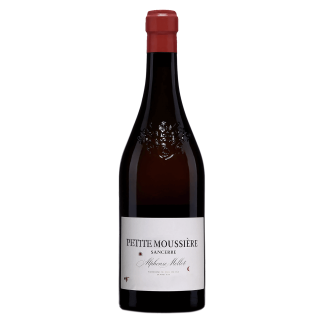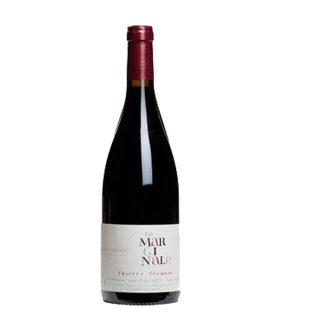Description
About Mas de Libian in Côtes du Rhône, France
Although this free-spirited Ardèche grower can trace its roots as far back to 1670, the Domaine as we know it began to make a name for its wines somewhat more recently. Under the name Caves des Deux Jean-Pierre, Mas de Libian took root when Jean-Pierre Thibon took over management of the farm from his parents and built the original wine making cellar in 1970. Some years later, in 1995, Jean-Pierre was joined by his daughter Hélène Thibon and her husband Alain Macagno, creating the ‘Mas de Libian’. A decade later, Catherine Thibon, Hélène’s sister, began work in the vineyards and today Hélène (who acts as the face of the Domaine), Catherine, and Alain are joined by the newest generation, Hélène’s son Aurélien. Together the family tends twenty-five hectares of mature vines (and 8 hectares of “nourishing” land planted with olive trees, grains, hay, a vegetable garden and flower garden, as well as a few beehives).
We often talk about the Côtes-du-Rhône as though it was one homogenous region. In reality it is a vast area of land the size of a small country that encompasses many different climates, altitudes and soil types. Mas de Libian is located in Saint Marcel d’Ardèche on the hilly western slopes of the Rhône, at the tip of the visually stunning gorge of the Ardèche. The vineyards grow high on top of an ancient river terrace that rises steeply behind the Domaine. Here the mature goblet vines of Grenache and Mourvèdre et al. bathe in the Rhône sunlight while simultaneously enjoying excellent drainage and root penetration. The vineyards’ altitude provides cool evenings, which when coupled with the rocky limestone terroir and the bracing Mistral guarantees their wines vibrancy and freshness, traits for which this bohemian Domaine is highly respected. The breathtaking views of the Trois Becs, Mont Ventoux and the Dentelles de Montmirail only add further luster to this unique and magical place.
The model at Mas de Libian is the farm as a self-sustaining environment instead of a production unit. It’s an ideal that resonates though the wines, which ooze all the natural wealth and charm of this great region. The vines are cultivated and hand harvested, the soils hoed by hand in the spring and Catherine Thibon ploughs roughly one third of the vineyards’ clay-limestone terroir with the help of Nestor and Babmi, the estates two Franche-Comté workhorses. The vineyards classified as Côte-du-Rhône Villages are composed of large round river rocks (galets roulés) and red clay and as such are worked by tractor.
Hélène takes little credit for her farms’ organic management, which she says has been practiced here for generations. A continuation of this philosophy and an important milestone for the Domaine was becoming certified biodynamic (Demeter) in 2005. No chemicals are used and even in generous vintages very low yields are the norm. As the Mas de Libian biotope has come to offer an incredibly healthy environment for grape growing, Hélène has little recourse for sulphur, which is often not used at all during the winemaking process.
The wines are crafted in unlined concrete vats with – cuvée depending – a portion of each wine being aged in large old foudres or older demi-muids. The cellar was expanded in 1984 and then again in 2011 in order to house the growing inventory of large oak barrels from various coopers (including Rousseau and Grenier), but mostly houses a small collection of 30 and 40 hectolitre barrels from Austria’s Stockinger cooperage. There are no yeast additions here, and sulphur additions are kept to the barest minimum. Often the wines are raised without the addition of any sulphur at all save for a few milligrams at bottling. We should note that the gentle handling, precise winemaking and strict hygiene in the cellars renders Mas de Libian’s wines amongst the most stable low sulphur wines we know of. The wines are never fined or filtered.
Three ‘levels’ of wine are produced. The juicy, crunchy and floral scented Vin de Pétanque, the rosé, and the Domaine’s pulpy white (Cave Vinum) are bottled under the IGP Ardèche. Then come the two terroir-specific Côtes-du-Rhône bottlings Bout d’Zan and Khayyâm, while the glowing Mourvèdre, La Calade – drawn from a pure galets roulés terroir – is labelled Côtes-du-Rhône Villages. The hallmark of each is silky, low yield concentration parried by vibrancy and vitality of fruit; these are pure, brightly fruited and perfumed wines that clearly reflect an intuitive and honest dedication to the Domaine’s stony terroir and gnarled old goblet vines. All the factors outlined above, and the quality of the mesmerising wines that arise, place Mas de Libian as one of the most exciting addresses of the Southern Rhône.






